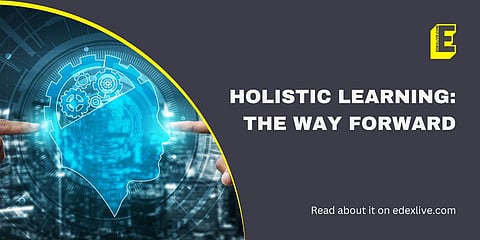Holistic learning, way forward: What does NEP 2020 say about it?
The traditional Indian education system has long been focused on academic achievement. However, in recent years, there has been a growing movement towards holistic learning in India. Holistic learning is an approach to education that focuses on the overall development of the child, including their academic, social, emotional and physical well-being.
There are many benefits to holistic learning. It can help students to develop a deeper understanding of themselves and the world around them. It can also help them develop the skills and qualities they need to succeed in life, such as critical thinking, problem-solving, teamwork and creativity.
There are a number of ways to implement holistic learning in India. One way is to incorporate more experiential learning into the curriculum. This could involve activities such as field trips, service learning and internships. Another way is to provide students with opportunities to develop their social and emotional skills. This could involve activities such as mindfulness, yoga and conflict resolution training.
The new National Education Policy (NEP) 2020 has also emphasised the importance of holistic learning in India. The NEP calls for a curriculum that is "child-centered, holistic, multidisciplinary, and outcome-based". It also calls for a focus on "life skills", such as critical thinking, problem-solving and creativity.
The implementation of holistic learning in India is still in its early stages. However, there is a growing momentum behind this movement. As more and more schools and educators embrace holistic learning, it is likely to have a positive impact on the lives of millions of students in India.



